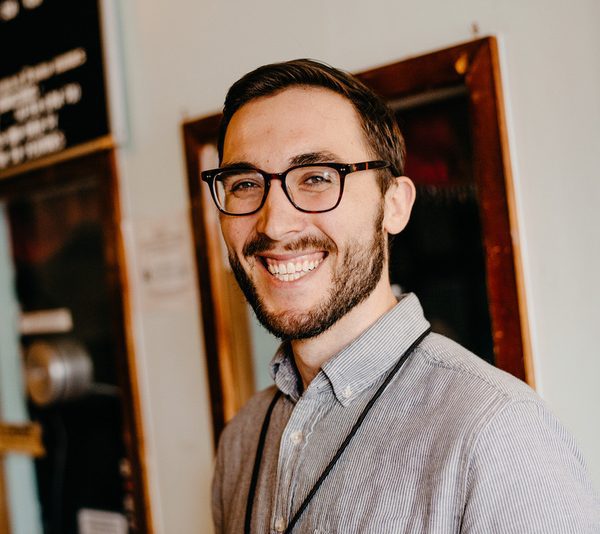Hariri Institute-Funded Project Transforms into Worldwide Collaboration to Visualize Christianity in Modern China
Scholars and scientists across the globe have found new ways to ensure that important research does not come to a halt during the COVID-19 pandemic. The Center for Global Christianity and Mission at Boston University recently showed how Hariri Institute-funded collaborative work can not only continue safely, but also flourish in the face of change.

In 2018, the Hariri Institute for Computing awarded an incubation grant to Research Assistant Professor of Mission Daryl Ireland, BU School of Theology, and Associate Professor Eugenio Menegon, Department of History, BU College of Arts & Sciences . With this funding, the Center for Global Christianity and Mission launched the China Historical Christian Database (CHCD) to better understand the history of Christianity in China.
What started as a Hariri Institute-supported project has grown into a worldwide collaboration. After their initial funding, the researchers were able to acquire additional support totaling $35,000 from BU’s Center for Global Christianity and Mission, BU’s Center for the Study of Asia, and BU’s Institute on Culture, Religion, and World Affairs. More external partnerships followed with the University of Beijing’s Institute of Qing History at Renmin and the University of San Francisco’s Ricci Institute for Chinese-Western Cultural History.

The goal of the project is to create network maps that paint a picture of the role of Christianity in modern China. The CHCD contains data on the locations of Christians throughout China’s history. The team will locate where every Christian school, church, and hospital was and who worked in these buildings. Since its original inception in 2018, the database has expanded its focus from just one province in China to the entire nation. The networks from CHCD could help researchers understand how cultural exchange between individuals in China and the West played a role in the emergence of modern China.

The team held their “Mapping Christianity in China, 1550-1950” workshop a few weeks ago to get the feedback necessary to scale up their database from it’s beta phase. The workshop had been designed to be held in person. Of course, COVID-19 has made gatherings of this size impossible. Thankfully, the researchers and scientists did not let this get in the way and redesigned everything to be held virtually.
The virtual format actually made it possible for contributors from all over the world to take part in the workshop. Over the three days of the event, 266 people from 28 different countries were able to attend. The workshop featured 14 speakers, including Hariri Institute Research Fellows Menegon and Ireland, as well as Ph.D. Candidate in History and Hermeneutics at the BU School of Theology Alex Mayfield.
COVID-19 has disrupted research plans, but scholars have found creative ways to ensure that their work continues. And people like Menegon and Ireland have enhanced their collaborations as a result. Despite the separation researchers have experienced this year, this workshop proves there is always a way to foster innovative collaborations.
If you are interested in viewing the recorded sessions from the “Mapping Christianity in China, 1550-1950” workshop, please visit chcdatabase.com.
Interested in learning more about the transformational science happening at the Hariri Institute? Sign up for our newsletter here.
